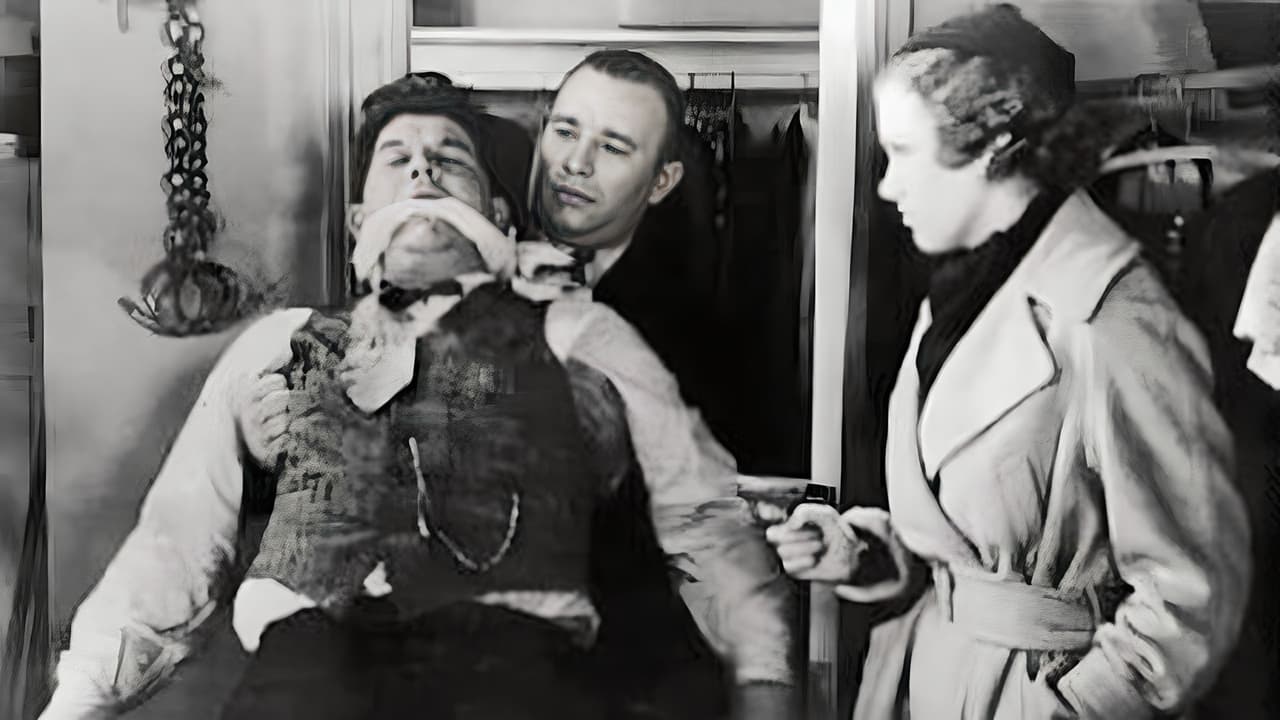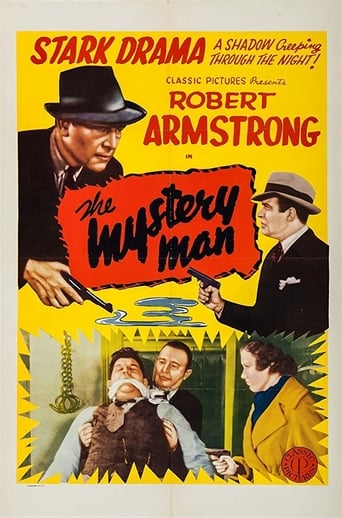

Robert Armstrong (Larry Doyle), Maxine Doyle (Ann), Henry Kolker (Jonas), James Burke (Marvin), Guy Usher (District Attorney Johnson), LeRoy Mason (The Eel), Dell Henderson (hotel manager), Monte Collins (Dunn), Norman Houston (Whistler), James P. Burtis (Whalen), Sam Lufkin (Weeks), Otto Fries (pawnbroker), Sam Flint (Jerome Roberts, the publisher), Stanley Blystone (waiter), Herb Vigran (fingerprint man), Frfed Kelsey, Bruce Mitchell (policemen), Harry Strang (train depot tightwad), Lee Shumway, Rollo Lloyd.Director: RAY McCAREY. Screenplay: John W. Krafft, Rollo Lloyd. Adapted by William A. Johnston from a story by Tate Finn. Photography: Harry Neumann. Film editor: Carl Pierson. Art director: E.R. Hickson. Sound recording: John A. Stransky, junior. Producer: George Yohalem. Executive producer: Trem Carr. Copyright 28 February 1935 by Monogram Pictures Corporation. U.S. release: 12 February 1935. No recorded New York opening. 67 minutes. SYNOPSIS: After being fired from his job in Chicago, a top crime reporter talks his way into the employ of a tabloid in St Louis.COMMENT: A pleasant but rather action-less little movie, spun out with loads of talk. Fortunately, the players led by live-wire Robert Armstrong and the really super-cute Maxine Doyle do manage to sustain interest. Well, even my interest anyway. But I think everyone will admit that even James Burke has a spicy role. And the really-really good news is that production values are unusually glossy by Monogram's generally rather humble standards.
... View MoreThe Mystery Man (1935) ** 1/2 (out of 4) Decent mystery from Monogram has Robert Armstrong playing newspaper reporter Larry Doyle who after a big story gets a revolver as a gift. Later in the picture he's in need of money so he pawns the gun and is later arrested for a murder that was done using the same gun. Now Doyle must prove that he actually pawned the gun and that the killer known as The Eel was the real murderer. THE MYSTERY MAN is a fairly entertaining movie, although the story I've just given really doesn't tell everything. This thing clocks in at just 61-minutes and the murder doesn't take place until around the 37-minute mark, which should tell you a couple things. For starters, there's a lot of early filler in the film that probably could have been left and and in all honesty it probably should have been left out. The only problem then is that you wouldn't be left with a movie. The second problem is that the solving of the case happens in the final twenty minutes and in many ways this was simply way too fast for the crime to be solved. With that said, fans of Armstrong as well as the genre should find the material good enough to keep you entertained through the short running time. As you'd expect, Armstrong has no problems playing the smart aleck reporter who is constantly rubbing people the wrong way until he's finally the one being pushed around. Maxine Doyle is also very good as the woman who ends up helping the reporter on his mission. The two stars have some nice chemistry together and their work certainly helps keep the film moving. The biggest problem with the picture is that there's a bit too much comedy and sadly the majority of it never works. Still, the majority of the people remains entertaining as long as you're not expecting THE MALTESE FALCOLN or some sort of classic.
... View MoreThe Mystery Man (1935)Well this is a fast hoot, and not a good movie by any means. It has a chipper tone and some comic twists, but the acting, the acting. The core idea is good--a news reporter with a thankless editor gets caught up in a story while on leave from his Chicago paper. But the St. Louis newspaper won't believe he's a reporter, and he gets stranded and eventually accused. Luckily his buddies back home help out, and even better, a pretty girl is also stranded and helpless and good for moral support and some cleverness in the nick of time. Coulda been something.It's not like 1935 is too early for a snappy, intelligent crime detective caper film. We've already had a string of absolute classics from Warner Bros. in the early 30s, and we're seeing the beginning of the "Thin Man" series with its high level of sophistication. But this is a B-movie through and through, and I guess there is only so much talent to go around. You would do better plodding through the worst of the Mr. Moto or the Charlie Chan films than this one.
... View MoreThis uneasy cross between a "Front Page" style newspaper yarn and a cops and robbers movie was entertaining at times but never really dramatically engaging. It was made less than a decade after the stage version, and only a few years after the Menjou/O'Brien version of Front Page. The comedic elements in the first part of the movie, as well as some funny ironic dialog come out of the interactions between news hound Larry Doyle, his editor, and his fellow reporters, come from that style of film. Halfway through, we leave that movie and enter into a crime flick, with a decent ingénue mistaken for Mrs. Doyle (played by an actress who was really named Doyle, by the way) and a case of mistaken identity leaving the reporter holding the bag. The resolution is not very clever, and the light tone of the first part of the movie means we're never really worried something bad will happen in the second. I mean, if it had been made in the 1970's, that may have happened, but in 1935, no way.There's a really neat moment at the end, though, that illustrates how in the 1930's everyone knew that newspapers could make or break elected officials, and how the publishers could influence what was published. I don't know when we lost that breezy cynicism about money and media, but I prefer it to the sacred cow of editorial independence that characterized the movies about the media I watched growing up. Doesn't really save the movie, but it is an interesting difference from things 75 years ago.
... View More